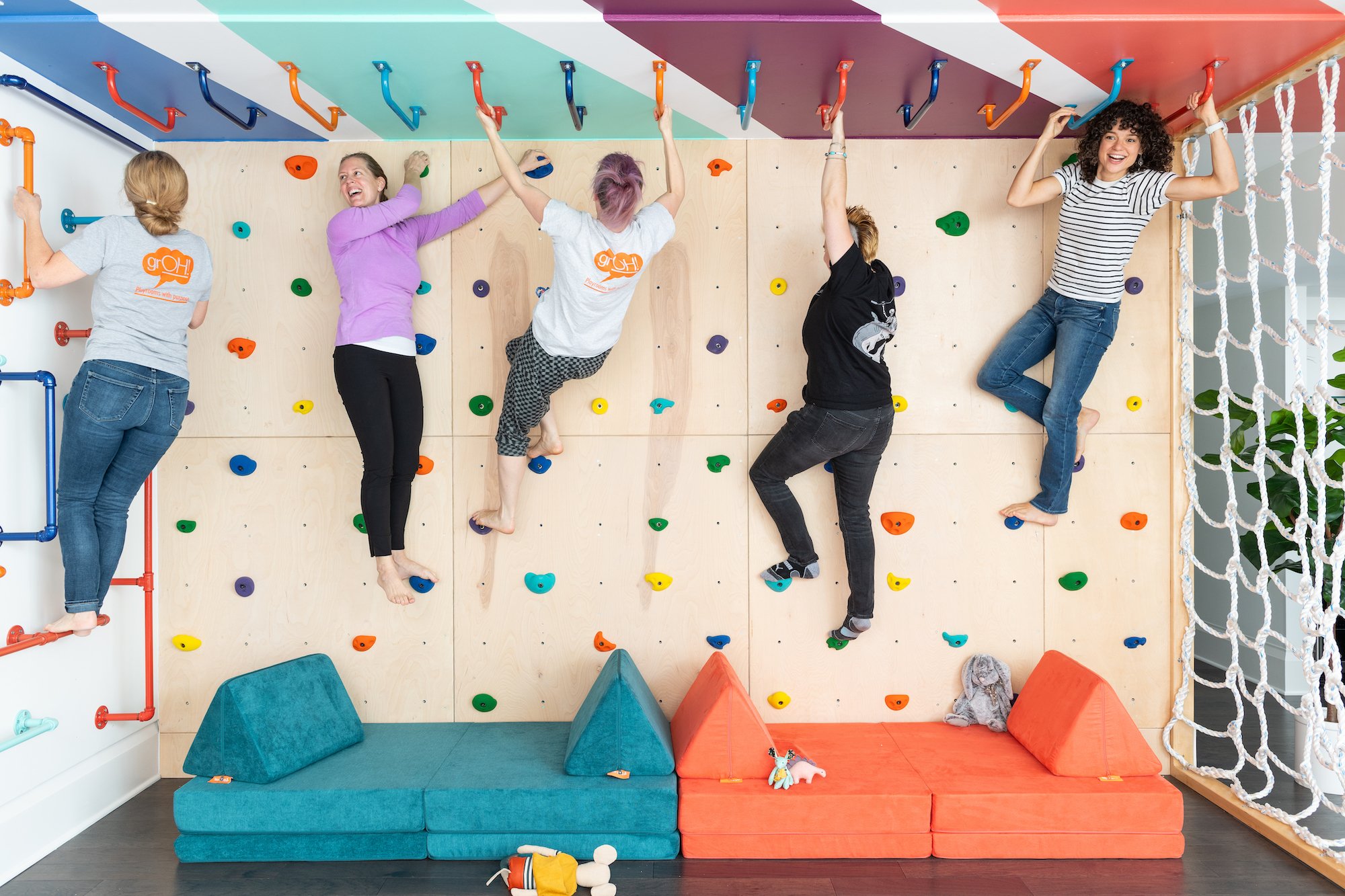
About grOH!
Two teachers teamed up to create perfect playrooms.
grOH! was founded in 2018 by educational experts Anne Gillyard and Jodi Arellano, fueled by a mutual passion to make purposeful play easier for families.

OUR “BALANCED PLAY” APPROACH
We’ve Identified
8 Essential Types of Play!
Reggio Emilia Schools refer to the play environment as the "third teacher," and we fully agree. The layout and contents of the play space matter! We design playrooms with a balanced play approach. Toys provide children with opportunities to reflect on and investigate their world. Different toys inspire different types of play, activating different parts of the brain, so it’s important to have a wide variety on hand. High-quality toys from our 8 Play Categories encourage growth of the whole child and foster balanced play and development. What about books, you may ask? Rest assured, we integrate books throughout our designs!
-
Art is self-expression through the creation of visual pieces (e.g., drawings, paintings, sculptures)
Sensory play stimulates a child’s senses, usually focusing on touch, sight, and hearing. Oftentimes, we see kids engage in small world play with a sensory backdrop (e.g., animal figurines in a sensory bin of water beads)
Examples: Art supplies (markers, pencils, glue, etc.), easel, craft supplies, kinetic sand, Play-doh
-
Stacking, linking, connecting parts to create a structure.
Kids often integrate building and small world play.
Examples: brick toys (DUPLO, LEGO, MEGA Bloks); magnetic tiles; train tracks; blocks
-
Play that invites large body movements, like jumping, climbing, and throwing.
Examples: Pikler triangle, climbing wall, rocker, scooters and bikes, ride-on toys, and balls
-
Play used to pretend (make believe!) and tell stories; the child is often in the story, usually manipulating toys to be a part of the story with them
Examples: dress up clothes and costumes, play kitchen and food, baby doll and accessories, phone, doctor kit, puppet
-
Play that creates sounds, vocal or instrumental (or both!)
Examples: hand drum, keyboard, xylophone, ukulele
-
This play involves pattern searching and linking (puzzles) and following directions to complete a task/goal
-
ALL play develops skills, but this type of play is based in toys and materials that teach targeted skills, which means they aren’t as open-ended in nature as toys in other categories
Examples: Baby toys, lacing cards, Montessori toys/materials, academic skill games, math fact “machines”
-
Play in which kiddos create “worlds” and tell stories; the child sets up a “small world” scene with toys to act out a story they have in their imagination; toys are often miniature
Examples: animal, people, and character figurines; farm set; doll house

The grOH! Difference
Interactive & Tactile
Age & Stage Appropriate
Educational & Imaginative
Functional & Organized
The Power of grOH! Playrooms!
Amazing playrooms =
amazing lifelong skills!
The quality of your child's play environment has a direct effect on their skill development. Our intentional, rich play environments engage your child and support open-ended play. This better prepares children for school and life, and supports skill development, especially: creativity, problem-solving, resilience, inquiry, ingenuity, and leadership.
Reduced Screen-Time
On average kids in the US spend 7.5 hours on screens each day. Research shows that regular access to rich play opportunities has a big impact on improving behavior and focus on learning.
Our bright, bold and organized play spaces guide your kids to play longer, think more deeply, and work more collaboratively.
A Boost to
Brain Development
85% of your child's brain development happens before age 5, and play is a major contributor to proper brain development! A purposeful and educational play space creates the rich learning environment that supports this rapid brain growth and prepares children for success in school.

Get to know us better!
We're fun to hang out with.







